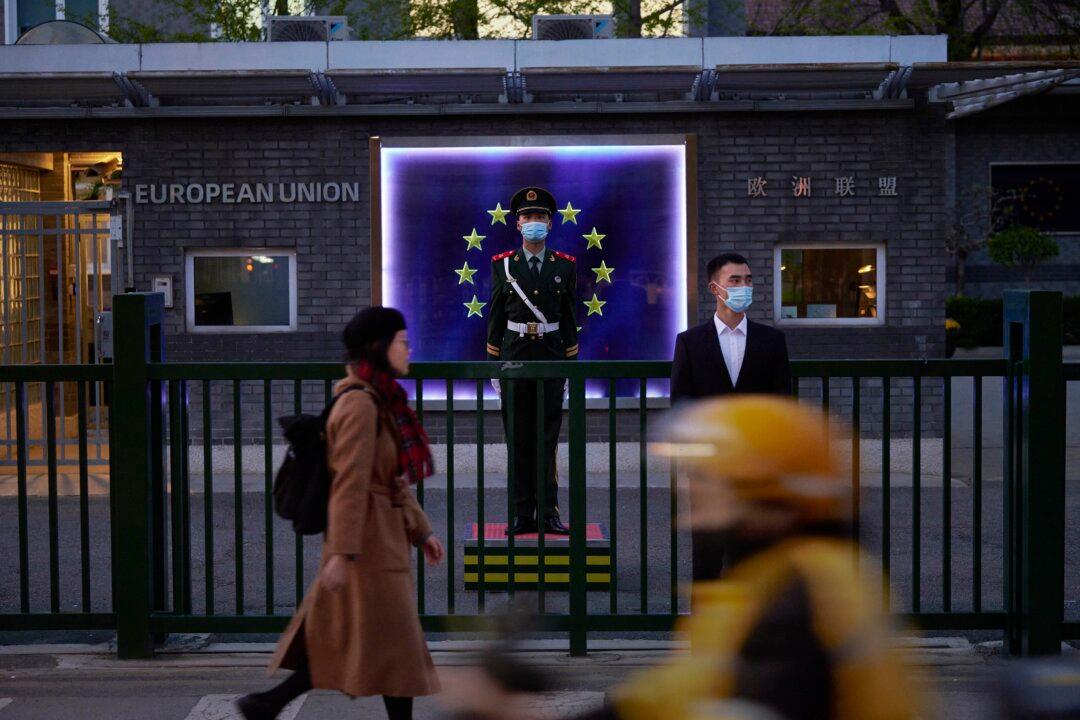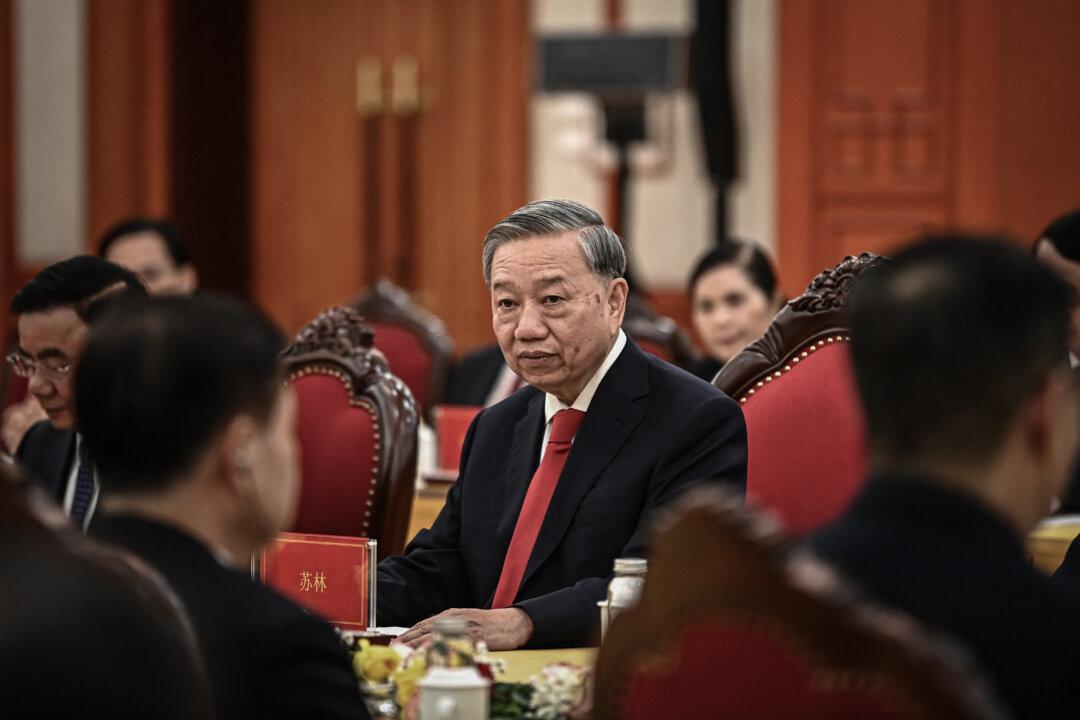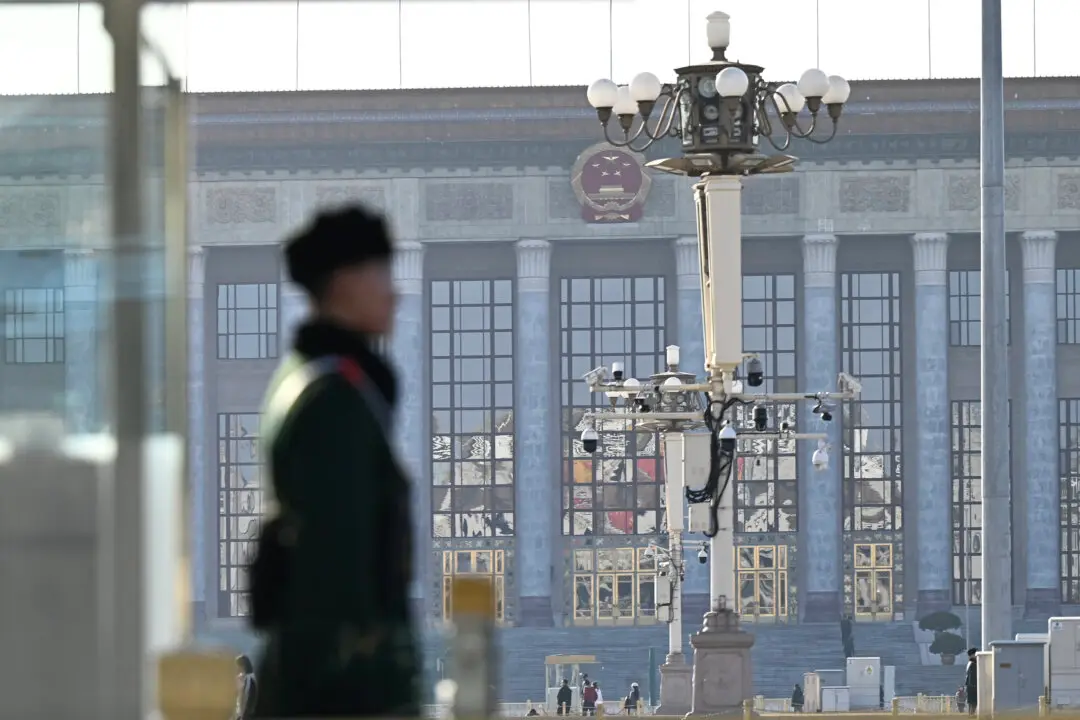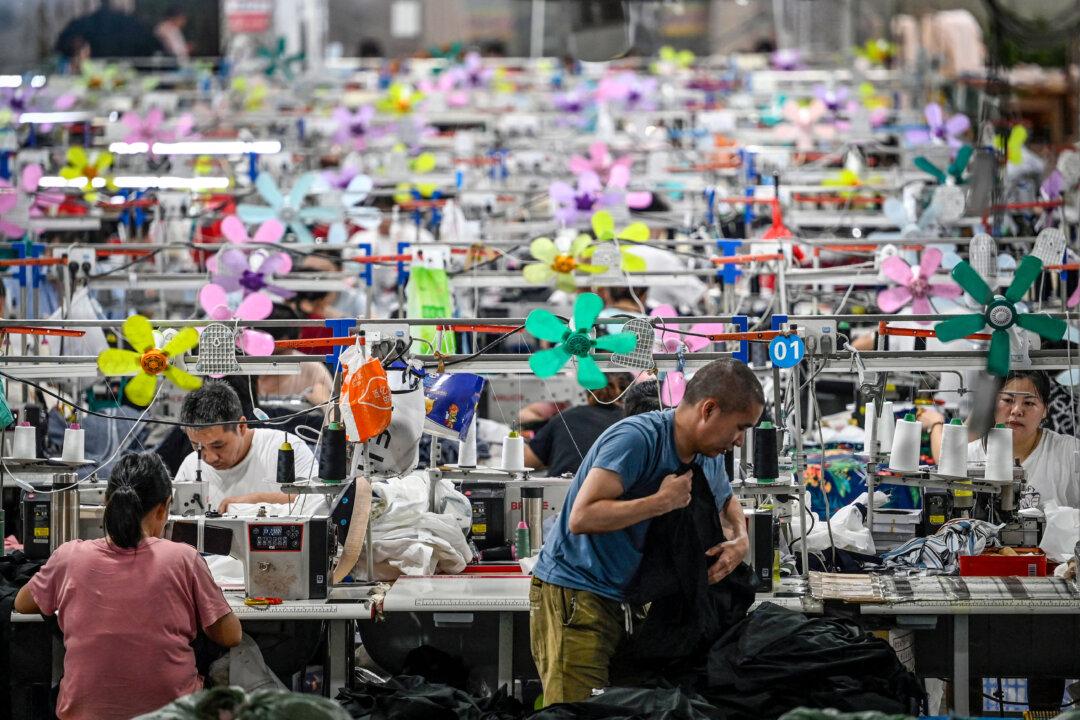The European Union reiterated its concerns over “the very serious human rights situation in China” during a recent dialogue with the communist country.
Senior EU diplomats led by Paola Pampaloni, deputy managing director for Asia and Pacific at the European External Action Service (EEAS), delivered their concerns after engaging in an annual human rights dialogue with Chinese officials. The June 16 event was jointly chaired by Ms. Pampaloni and Shen Bo, director general of the international organizations and conferences department at China’s foreign ministry.
“The EU urged China to investigate and stop human rights violations, expressing concern for cases of unlawful detention, enforced disappearance, torture and ill-treatment.”
Rare Tibet Visit
In a rare move, the EU delegation made a three-day visit to Tibet last week ahead of the human rights dialogue. At Brussels’ request, Chinese authorities arranged for the delegation to visit Tibet’s capital, Lhasa, and its eastern city of Nyingchi.According to the EEAS statement, they visited “boarding schools, municipalities, cultural and religious sites, relocated Tibetan families, as well as to a prison,” adding that “The side visit reflected the majority of the EU’s requests, except for meetings with individual prisoners.”
Hong Kong
In addition to Tibet, senior EU diplomats reiterated further concerns about Hong Kong, where the city’s pro-CCP legislators have recently enacted a new security law.“The EU also referred to the negative impact of Hong Kong’s new national security legislation on the rights and freedoms of the people of Hong Kong, and the erosion of the high degree of autonomy guaranteed by the Basic Law and China’s international commitments towards the Hong Kong Special Administrative Region,” it stated.
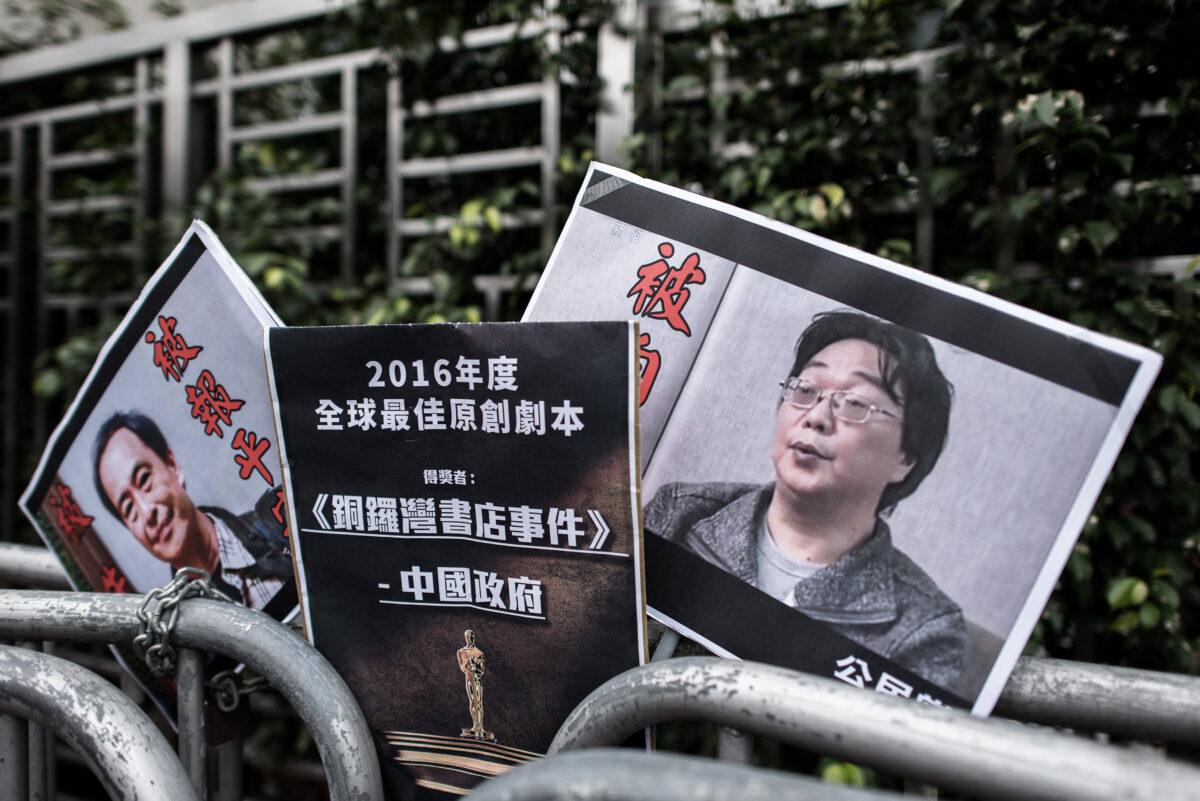
Falun Gong
EU officials also raised the plight of Ding Yuande, an imprisoned Falun Gong practitioner who’s son is a German resident. Mr. Ding received a three-year jail term in December 2023.
The CCP appeared to be unmoved by the EU’s appeals.
At a Tuesday briefing, Chinese foreign ministry spokesperson Lin Jian told reporters that Brussels should stop “interfering in China’s internal affairs under the pretext of human rights.”
Rights advocacy groups have for years called on the EU to halt the human rights dialogues with China, given that conversation is not enough to push the CCP to put an end to its abuses.
“While the EU raises concerns during these dialogues, it knows that the Chinese government will not acknowledge abuses, will not undertake any effort to secure accountability, and will not be persuaded to undertake any policy or legislative action to comply with China’s international human rights obligations,” Human Rights Watch and four other rights advocacy groups said in a joint statement on June 12.
“The EU and its member states should pursue different, more effective actions to press the Chinese government to end its crimes against humanity and other serious violations–and to hold accountable those responsible for failing to do so,” it added.
